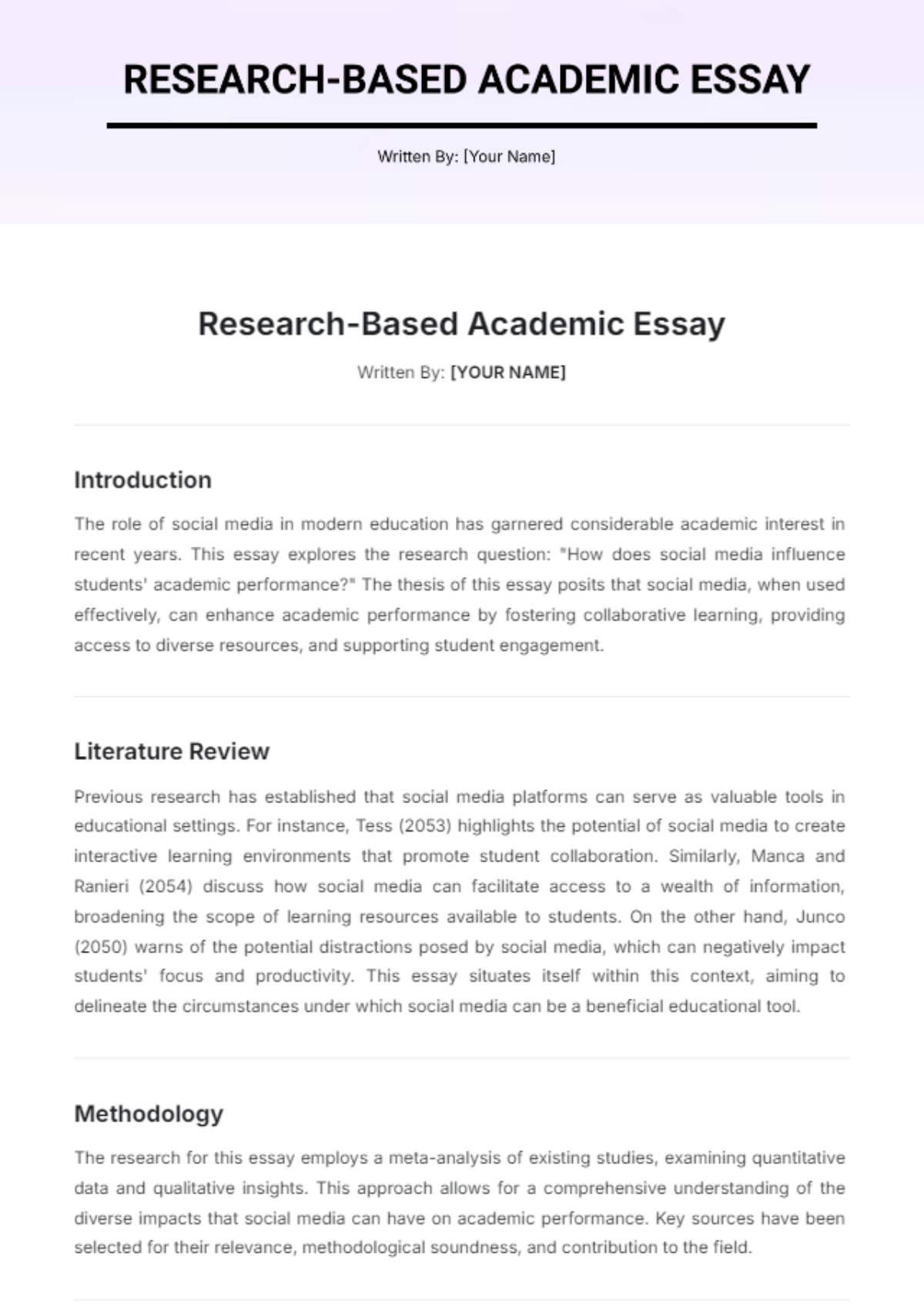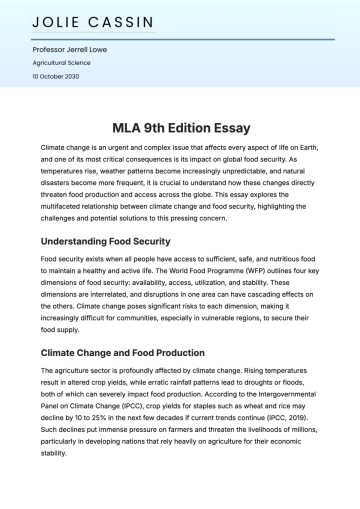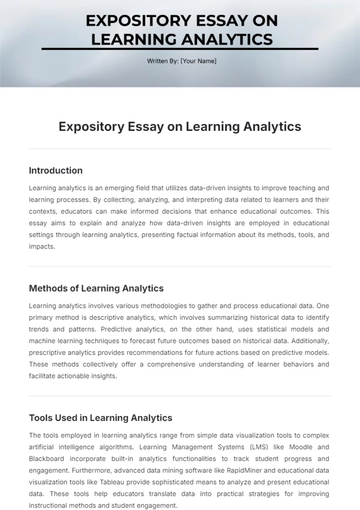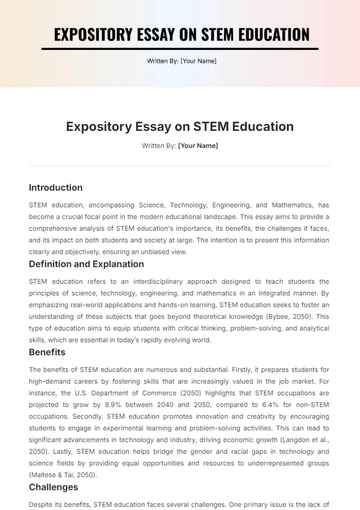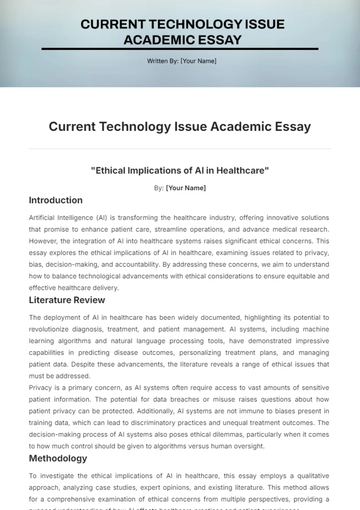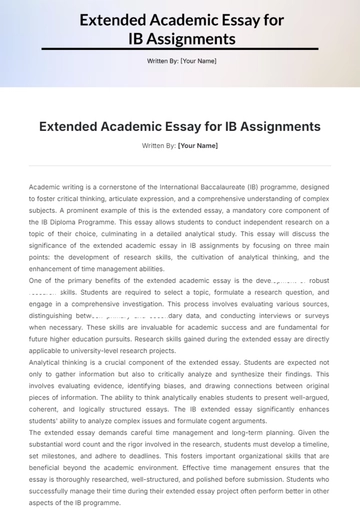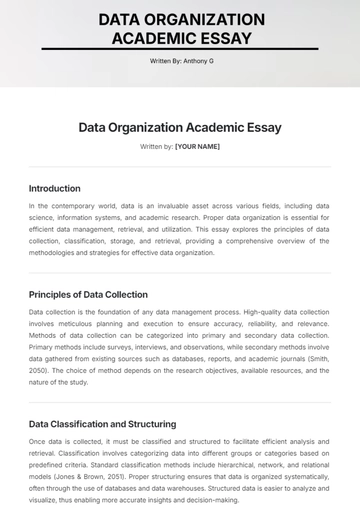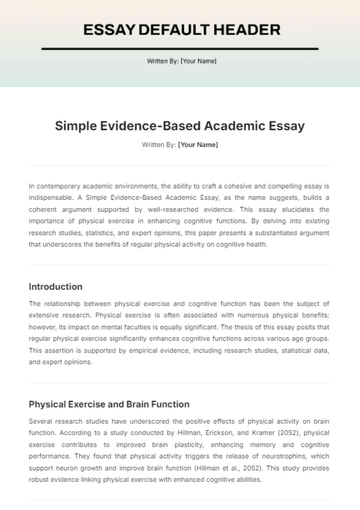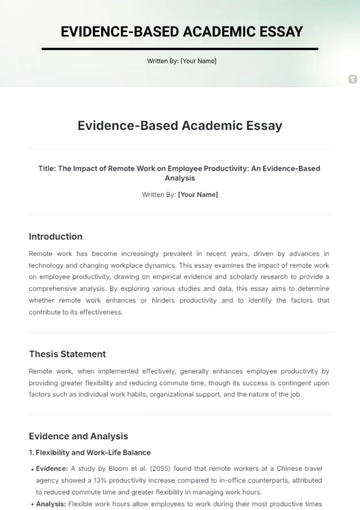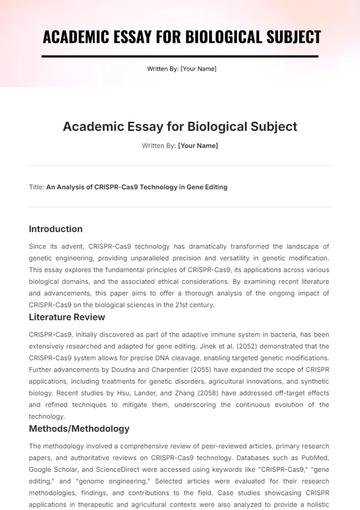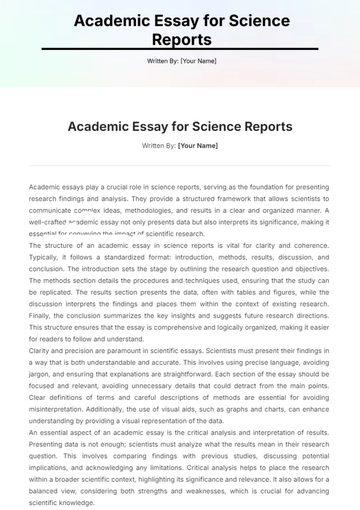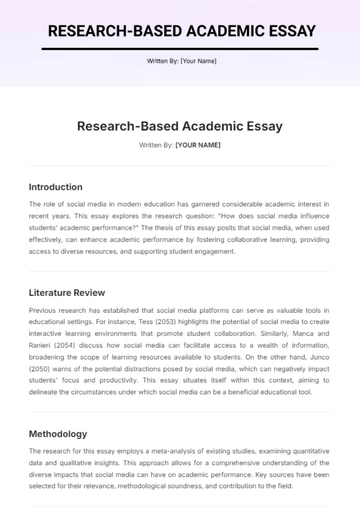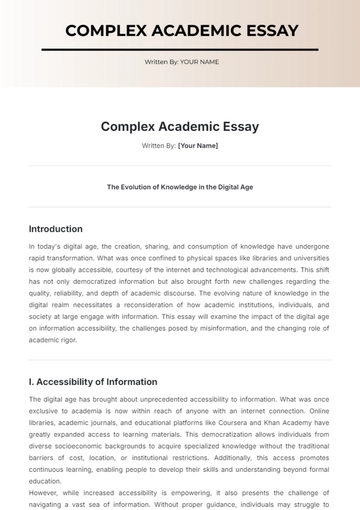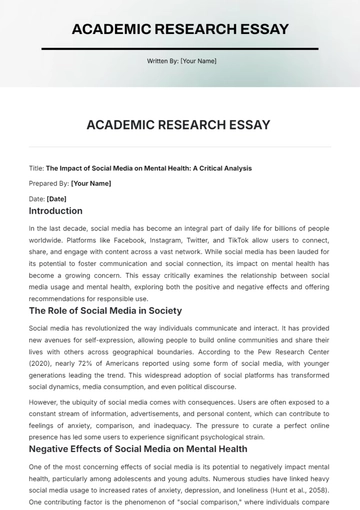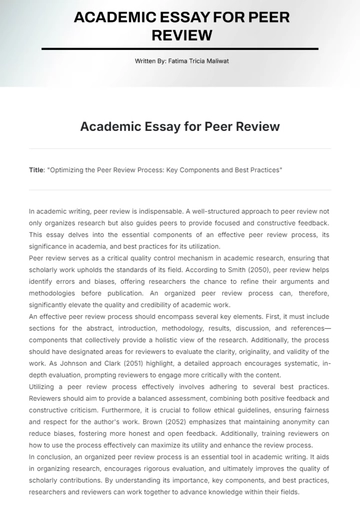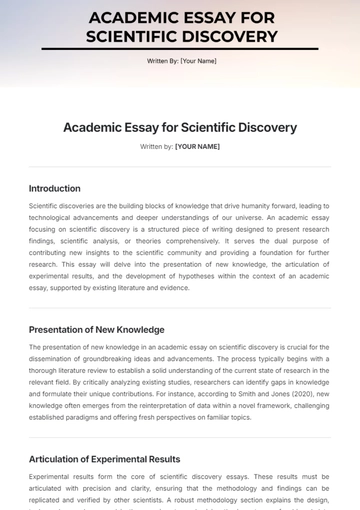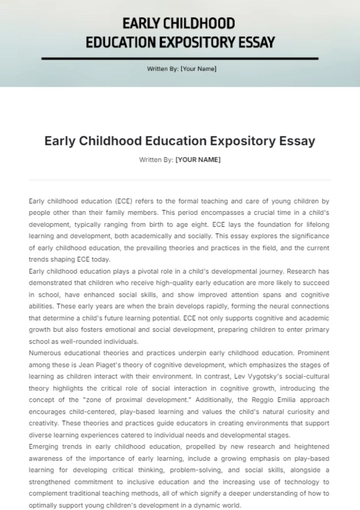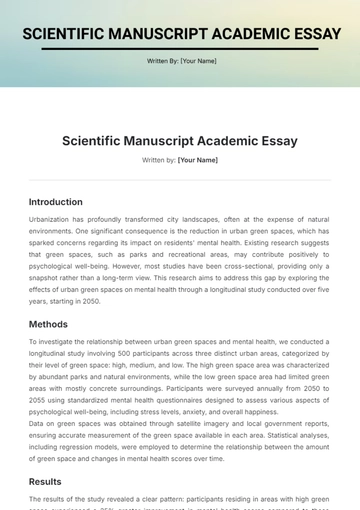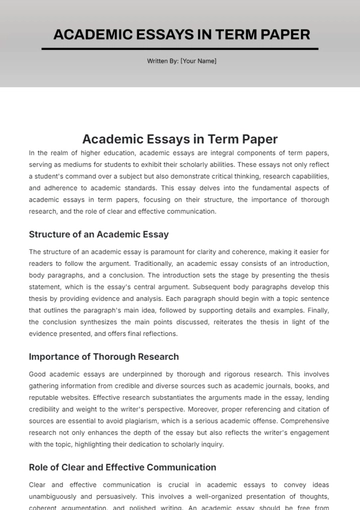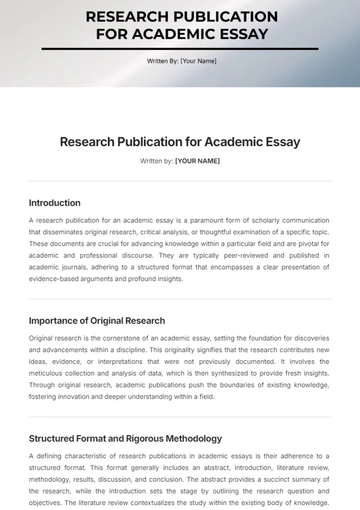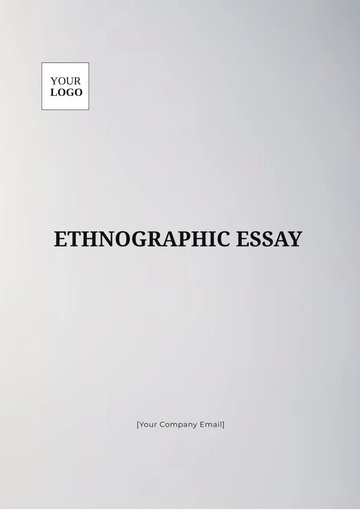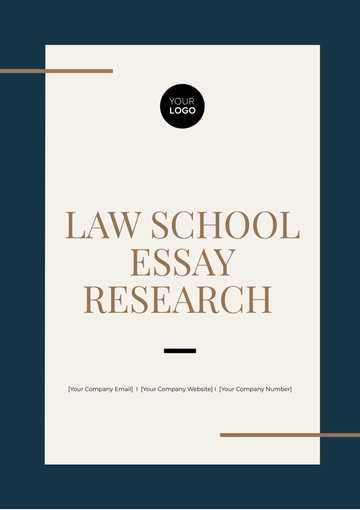Research-Based Academic Essay
Written By: [YOUR NAME]
Introduction
The role of social media in modern education has garnered considerable academic interest in recent years. This essay explores the research question: "How does social media influence students' academic performance?" The thesis of this essay posits that social media, when used effectively, can enhance academic performance by fostering collaborative learning, providing access to diverse resources, and supporting student engagement.
Literature Review
Previous research has established that social media platforms can serve as valuable tools in educational settings. For instance, Tess (2053) highlights the potential of social media to create interactive learning environments that promote student collaboration. Similarly, Manca and Ranieri (2054) discuss how social media can facilitate access to a wealth of information, broadening the scope of learning resources available to students. On the other hand, Junco (2050) warns of the potential distractions posed by social media, which can negatively impact students' focus and productivity. This essay situates itself within this context, aiming to delineate the circumstances under which social media can be a beneficial educational tool.
Methodology
The research for this essay employs a meta-analysis of existing studies, examining quantitative data and qualitative insights. This approach allows for a comprehensive understanding of the diverse impacts that social media can have on academic performance. Key sources have been selected for their relevance, methodological soundness, and contribution to the field.
Analysis/Discussion
The analysis underscores several key points supporting the thesis: first, social media platforms such as Facebook and Twitter facilitate collaborative learning by allowing students to share ideas, resources, and feedback (Greenhow & Lewin, 2056); second, platforms like YouTube and LinkedIn Learning offer accessible educational content that enhances students' understanding of course material (Smith & Caruso, 2051). However, disciplined use of social media is crucial, as Junco (2050) points out that excessive use for non-academic purposes can diminish study time and focus. Thus, the positive effects of social media on academic performance depend on its strategic and balanced use.
Conclusion
In conclusion, the findings of this essay affirm the thesis that social media, when harnessed effectively, can play a significant role in enhancing students' academic performance. By promoting collaborative learning, providing access to a variety of educational resources, and fostering student engagement, social media can serve as a powerful educational tool. Future research should focus on identifying best practices for integrating social media into educational curricula and developing strategies to mitigate potential distractions.
References
Greenhow, C., & Lewin, C. (2056). Social Media and Education: Reconceptualizing the Boundaries of Formal and Informal Learning. Learning, Media and Technology, 51(1), 6-30.
Junco, R. (2050). The Relationship Between Frequency of Facebook Use, Participation in Facebook Activities, and Student Engagement. Computers & Education, 68(1), 162-171.
Manca, S., & Ranieri, M. (2054). Facebook and the Others. Potentials and Obstacles of Social Media for Teaching in Higher Education. Computers & Education, 105, 216-230.
Smith, S. D., & Caruso, J. B. (2051). The ECAR study of undergraduate students and information technology. Boulder, CO: EDUCAUSE Center for Applied Research.
Tess, P. A. (2053). The role of social media in higher education classes (real and virtual) – A literature review. Computers in Human Behavior, 35(5), A60-A68.
Essay Templates @ Template.net
